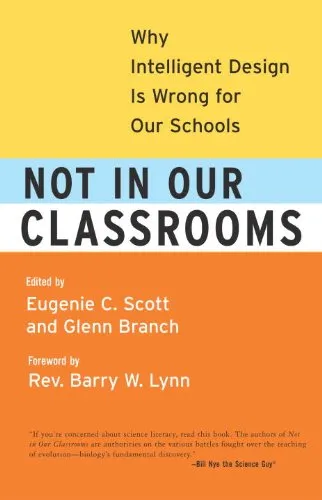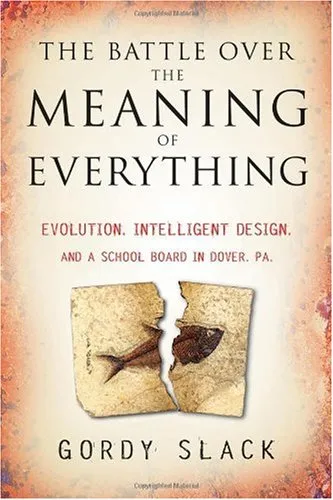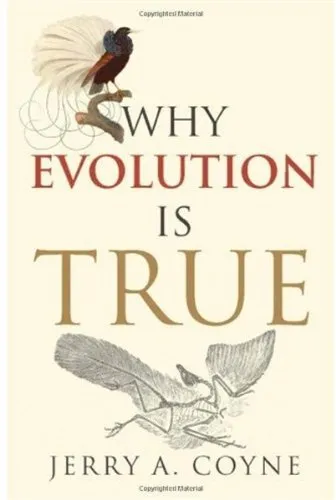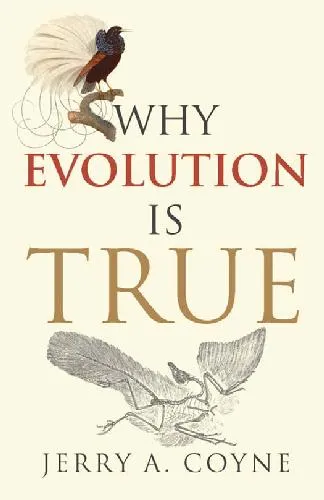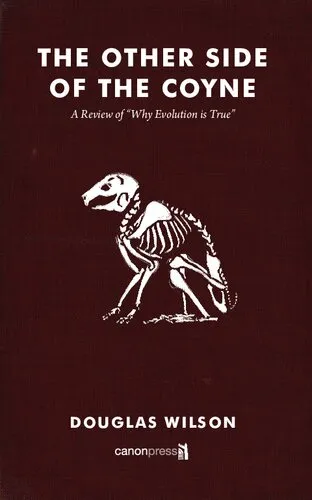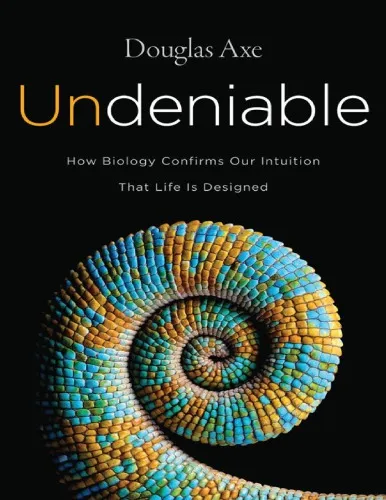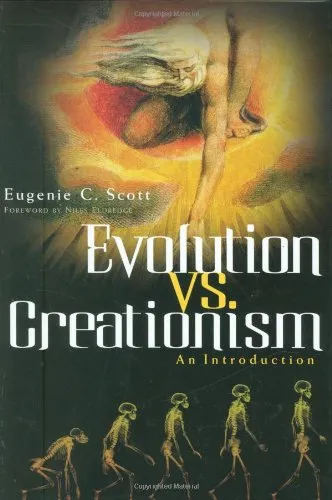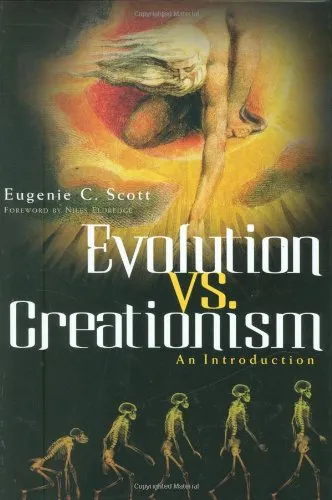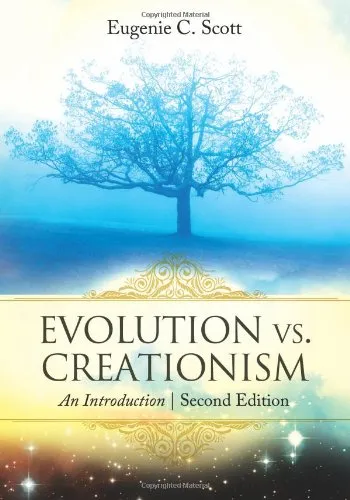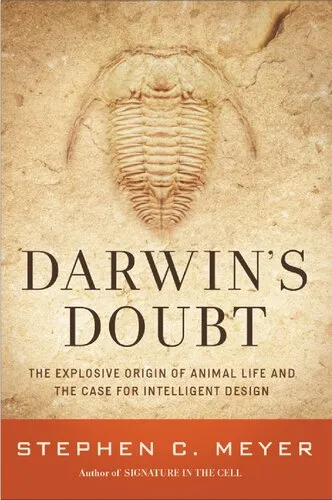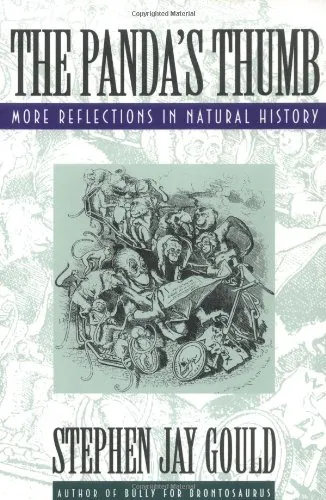Not in Our Classrooms: Why Intelligent Design Is Wrong for Our Schools
3.8
بر اساس نظر کاربران

شما میتونید سوالاتتون در باره کتاب رو از هوش مصنوعیش بعد از ورود بپرسید
هر دانلود یا پرسش از هوش مصنوعی 2 امتیاز لازم دارد، برای بدست آوردن امتیاز رایگان، به صفحه ی راهنمای امتیازات سر بزنید و یک سری کار ارزشمند انجام بدینکتاب های مرتبط:
Persian Summary
کتاب "Not in Our Classrooms: Why Intelligent Design Is Wrong for Our Schools" توسط Eugenie C. Scott و Glenn Branch نوشته شده و به موضوع چالشهای آموزشی مرتبط با Intelligent Design میپردازد. این کتاب بر اهمیت آموزش علم پایهگذاریشده و مشکلات ادغام تئوریهای غیرعلمی در سیستم آموزشی تأکید میکند.
خلاصهای از کتاب
این کتاب به بررسی فشارهایی که برای گنجاندن Intelligent Design در برنامههای آموزشی انجام میشود، پرداخته و دلایل علمی و فلسفی مخالفان را تجزیه و تحلیل میکند. نویسندگان با ارائه شواهدی از کارشناسان آموزش و علوم، اهمیت حفظ تمایز میان علم و باور شخصی در سیستم آموزشی را نشان میدهند. کتاب با مثالهایی از تاریخچه نحوه ورود موضوعات جنجالی به آموزش و پیامدهای آنها، نشان میدهد که چرا Intelligent Design جایی در کلاسهای علمی ندارد.
نکات کلیدی
- تبیین خطرات ادغام تئوریهای غیربنیادی در آموزش علمی.
- تأکید بر جداسازی علم و باورهای شخصی و مذهبی در محیط آموزشی.
- ارائه راهکارهایی برای حمایت از آموزش علم واقعی در مدارس.
جملات معروف از کتاب
"تبعیض میان علم و غیرعلم نه تنها برای همگامسازی آموزش با کشفیات مدرن، بلکه برای حفظ تمامیت خود علم ضروری است."
"آموزش صحیح علم به معنای آمادهسازی دانشآموزان برای چالشهای فکری آینده است، نه گمراه کردن آنان با تئوریهای اثباتنشده."
چرا این کتاب اهمیت دارد
این کتاب مسائل حساس و بحثبرانگیزی را در حوزه آموزش علم برجسته میکند و نقشی اساسی در گفتگوهای عمومی پیرامون حفظ کیفیت آموزش علمی دارد. با روشنسازی تفاوتها و مخاطرات مطرحشده توسط Intelligent Design، این کتاب به عنوان منبعی حیاتی برای معلمان، والدین، و سیاستگذاران آموزشی عمل میکند. اهمیت کتاب در تأکید آن بر دفاع از بنیان علمی و مقابله با نفوذ باورهای غیربنیادی در کلاس درس کاملاً مشهود است.
Introduction to "Not in Our Classrooms: Why Intelligent Design Is Wrong for Our Schools"
"Not in Our Classrooms: Why Intelligent Design Is Wrong for Our Schools" is a seminal work that delves into the contentious debate surrounding the teaching of intelligent design in public school science classrooms. Written collaboratively by Eugenie C. Scott and Glenn Branch, both prominent figures in the defense of science education, this book provides a comprehensive dissection of the legal, educational, and scientific flaws of intelligent design as a credible scientific theory.
Detailed Summary of the Book
Throughout "Not in Our Classrooms," the authors present a meticulously researched argument against the inclusion of intelligent design in science curricula. Unlike traditional scientific theories, intelligent design is rooted in religious ideology rather than empirical evidence. Scott and Branch highlight how its proponents often disguise religious motives under scientific rhetoric. By analyzing courtroom battles, particularly the landmark Kitzmiller v. Dover Area School District case, the book underscores how intelligent design fails to meet the standards of genuine scientific inquiry.
The authors strategically dismantle the argument that teaching intelligent design fosters critical thinking or balanced education. Instead, they argue it paves the way for undermining scientific literacy. With contributions from other notable scientists and educators, the text serves as a robust resource that covers the legal, pedagogical, and scientific dimensions of this enduring controversy.
Key Takeaways
- Empirical Standards: Genuine science is based on testability, falsifiability, and peer review, none of which intelligent design meets.
- Legal Precedents: The legal system, as demonstrated by significant court rulings, consistently sides with protecting the integrity of science education by excluding intelligent design.
- Educational Impact: Introducing religiously motivated theories into science curricula distracts from the educational goal of fostering scientific literacy and critical thinking.
Famous Quotes from the Book
"Intelligent design is a Trojan horse, using the language of science to introduce religious ideas into the classroom."
"True science respects the scientific method, based upon evidence and testing. Without these, it becomes indistinguishable from opinion or belief."
Why This Book Matters
The importance of "Not in Our Classrooms" lies in its comprehensive approach to defending science education against ideological intrusions. As society grapples with increasing waves of misinformation, this book serves as a critical educational tool that empowers educators, parents, and policymakers to safeguard the integrity of science education. By examining the multifaceted arguments against intelligent design, Scott and Branch offer a rigorous defense of why this ideology should be kept out of public school science classes.
The book is not only a reflection on the intersection of science and culture but also a call to action to support evidence-based education. In an era where science denial can have profound consequences, "Not in Our Classrooms" provides the necessary intellectual ammunition to assure that science remains empirical and that educators are equipped to teach the next generation of students to think critically and intelligently.
دانلود رایگان مستقیم
شما میتونید سوالاتتون در باره کتاب رو از هوش مصنوعیش بعد از ورود بپرسید
دسترسی به کتابها از طریق پلتفرمهای قانونی و کتابخانههای عمومی نه تنها از حقوق نویسندگان و ناشران حمایت میکند، بلکه به پایداری فرهنگ کتابخوانی نیز کمک میرساند. پیش از دانلود، لحظهای به بررسی این گزینهها فکر کنید.
این کتاب رو در پلتفرم های دیگه ببینید
WorldCat به شما کمک میکنه تا کتاب ها رو در کتابخانه های سراسر دنیا پیدا کنید
امتیازها، نظرات تخصصی و صحبت ها درباره کتاب را در Goodreads ببینید
کتابهای کمیاب یا دست دوم را در AbeBooks پیدا کنید و بخرید
1491
بازدید3.8
امتیاز0
نظر98%
رضایتنظرات:
3.8
بر اساس 0 نظر کاربران
Questions & Answers
Ask questions about this book or help others by answering
No questions yet. Be the first to ask!
